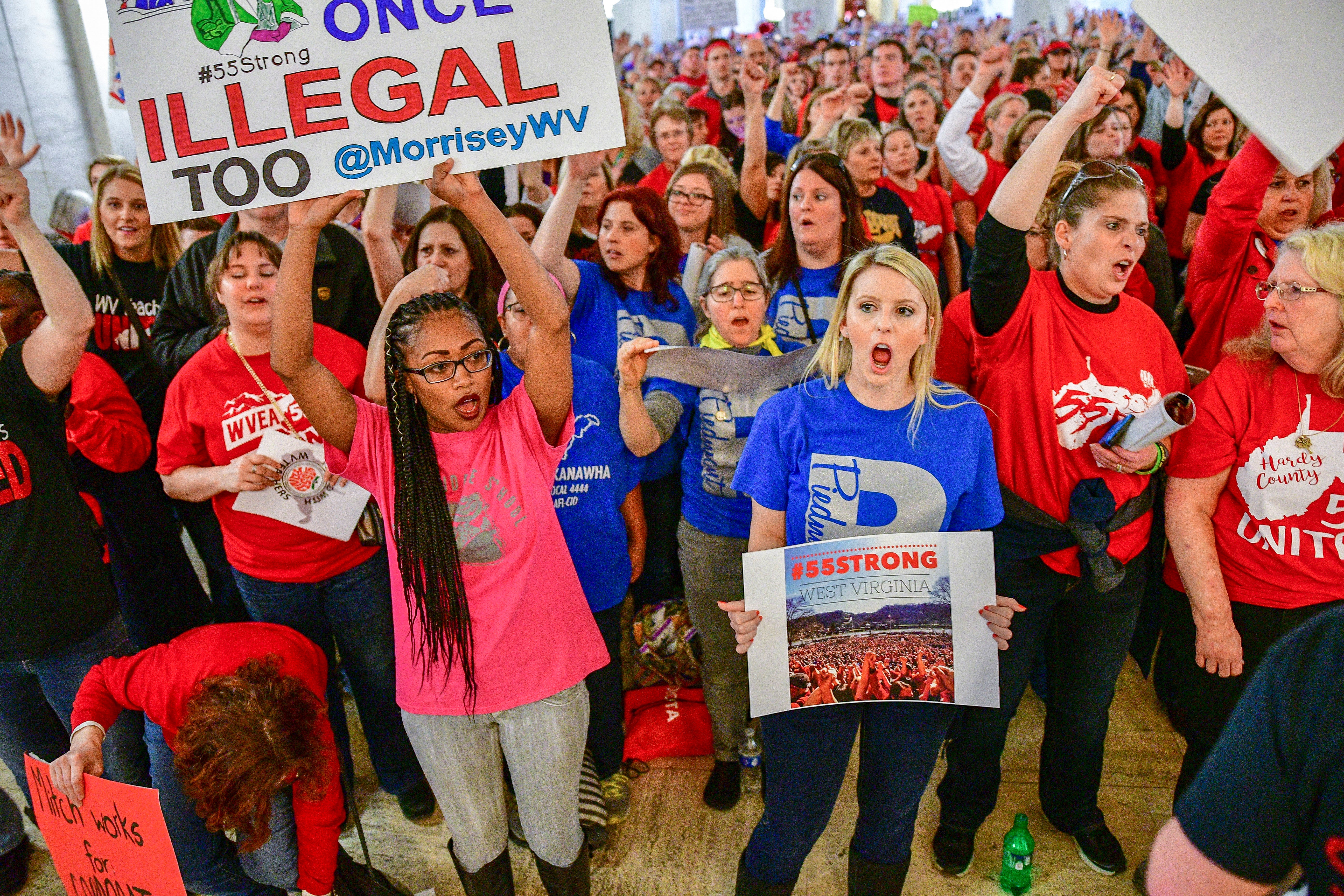Bill would allow firing of striking West Virginia teachers
A West Virginia state senator has renewed an attempt to punish teachers for striking in a state where work stoppages have occurred in two of the past three years

Your support helps us to tell the story
From reproductive rights to climate change to Big Tech, The Independent is on the ground when the story is developing. Whether it's investigating the financials of Elon Musk's pro-Trump PAC or producing our latest documentary, 'The A Word', which shines a light on the American women fighting for reproductive rights, we know how important it is to parse out the facts from the messaging.
At such a critical moment in US history, we need reporters on the ground. Your donation allows us to keep sending journalists to speak to both sides of the story.
The Independent is trusted by Americans across the entire political spectrum. And unlike many other quality news outlets, we choose not to lock Americans out of our reporting and analysis with paywalls. We believe quality journalism should be available to everyone, paid for by those who can afford it.
Your support makes all the difference.A West Virginia lawmaker has renewed an attempt to punish teachers for striking in a state where work stoppages have occurred in two of the past three years.
Senate Education Committee chairwoman Patricia Rucker, a Jefferson County Republican introduced a bill Wednesday on the first day of the regular legislative session that would allow striking teachers to be fired.
Under the bill, county boards of education could instead order the prorated salary or hourly pay of a public employee to be forfeited for each day of their participation in a strike. County superintendents also would be barred from closing schools in anticipation of or to facilitate a strike.
While the bill's prospects of passing are uncertain, the November election produced a supermajority for Republicans in both chambers of the legislature. Having a two-thirds majority gives the GOP the ability to advance bills without Democratic support.
Rucker's bill “doesn’t surprise me,” said Dale Lee, president of the West Virginia Education Association. "I think they can pass anything they want to pass.”
Similar anti-strike provisions were removed from an education bill that passed the Legislature in 2019.
Several states, including West Virginia, already ban teacher strikes, but that does not keep them from occurring. A 1990 state Supreme Court ruling declared a strike that year illegal.
If the current legislation would allow teachers to be fired, “that would be up to a legal challenge,” Lee said. "We haven’t had the right, so to speak, to strike the last two times we’ve had a work action. Our people understand that.
"If things get bad enough, they’re willing to take the risk.”
In 2018, West Virginia teachers and school service personnel went on strike statewide after balking at an initial bill signed by Gov. Jim Justice to bump up their pay 2% in the first year as they also complained about rising health insurance costs. West Virginia teachers, some of the lowest-paid in the country, had gone without a salary increase for four years.
The nine-day strike ended after the Legislature eventually agreed to 5% raises. The strike also launched the national “Red4Ed” movement which included strikes in Kentucky, Oklahoma, Arizona, Washington state, Los Angeles and Denver.
In 2019, West Virginia teachers went on strike for two days over a broad-based education bill that was killed hours after the walkout started. The bill had included a proposal to allow the state’s first charter schools. The Legislature then waited until after the school year concluded to pass the charter schools proposal.